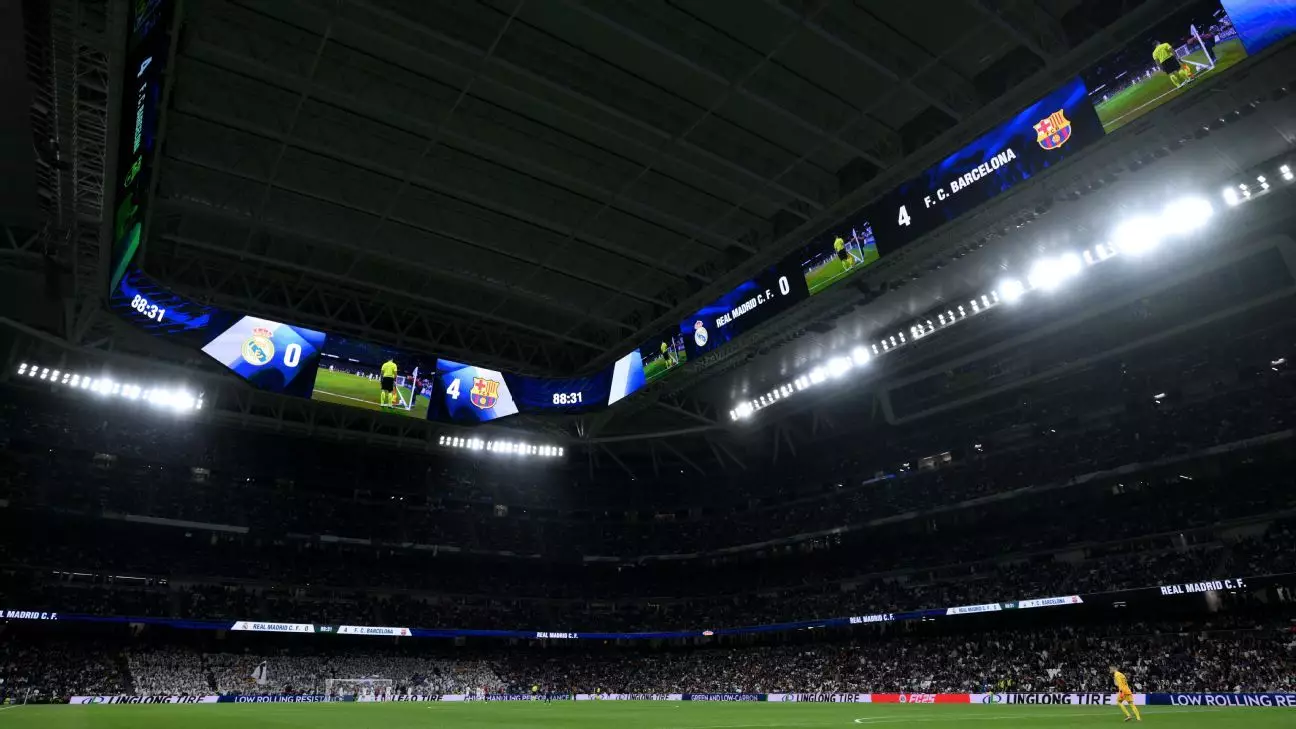In a heartbreaking turn of events during the well-publicized Clásico, the time-honored clash between FC Barcelona and Real Madrid, incidents of racial abuse marred what should have been a celebration of talent and sportsmanship. Following a decisive 4-0 victory for Barcelona at the Santiago Bernabéu, LaLiga revealed that they would be escalating the matter to law enforcement authorities. The disturbing events unfolded when Lamine Yamal, a young and promising talent, faced unacceptable racial insults after netting his team’s third goal. This incident highlights a disturbing trend in sports, underscoring the urgent need for systematic intervention against racism.
In a decisive statement, LaLiga expressed their vehement disapproval of the racist behavior witnessed in the match, emphasizing their commitment to combat any form of animosity on the field. The league disclosed their intention to report the abhorrent acts to the National Police’s Hate Crime Group, reflecting a proactive stance in addressing xenophobia in football. Additionally, LaLiga announced that they would inform the Coordinating Hate Crimes Prosecutor. This response marks a critical step in tackling racism, as the league strives to foster an environment where athletes can perform free from discrimination and hatred.
Real Madrid, one of the sport’s most prestigious clubs, also condemned the reprehensible behavior from select fans. They initiated an internal investigation aimed at identifying and penalizing those responsible for the offensive remarks. The club’s stance signifies a collective responsibility within football to ensure that such incidents are neither overlooked nor tolerated. Real Madrid’s commitment signifies a broader movement within the sport to address and eradicate discriminatory behavior.
LaLiga’s ongoing efforts to fight racism encompass a broader strategy to overhaul how incidents of discrimination are managed within Spanish football. Historical precedents highlight the struggle against this scourge, with recent cases, such as the racial abuse directed at Real Madrid’s Vinícius Júnior, ringing alarm bells across the league. The league’s initiative to conduct conferences in collaboration with local governments aims to raise awareness and introduce reforms that give authorities more power to combat racism effectively.
Despite the distressing nature of the events at the Clásico, they serve as a clarion call for all stakeholders in football — from leagues and clubs to fans — to unite against racism. It is imperative that this commitment extends beyond temporary outrage and leads to lasting changes in how we view and address racial abuse in football. Continuous dialogue, strict enforcement of punitive measures against offenders, and educational programs will be essential in steering the sport towards a more inclusive and respectful environment. Only then can the beautiful game truly mirror the society it represents, free from the shackles of hatred and discrimination.

